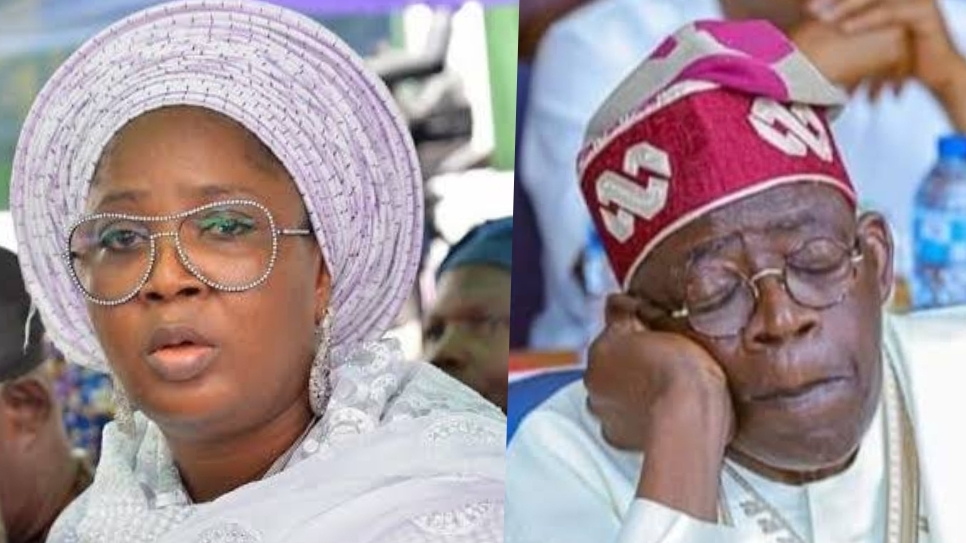
Lagos – Folasade Tinubu-Ojo, daughter of Nigerian President Bola Tinubu has urged market women in Dosumu Market, Lagos, to advise their children against participating in the planned hunger protest starting August 1.
In a viral video on Sunday, Tinubu-Ojo spoke with market women in Yoruba language, urging them to warn their children about the dangers of protesting, citing the destruction caused by previous protests, including the #EndSARS demonstration.
Tinubu-Ojo, the Iyaloja General of Lagos, emphasized that the Lagos State Government has made significant progress and deserves support.
She also noted that the federal government, headed by her father, should be given time to prove itself before being criticised.
“Let’s talk to ourselves, our children and our families that there is nothing like protesting in Lagos, it is just a ploy to destroy the country. See the last protest and the damage that was caused. Let’s not because a party is paying some people to fight, let’s not allow our children to participate,” Folasade Tinubu-Ojo said in Yoruba language.
She added in English language: “There is nothing like protest in Lagos State because the government of Lagos State is making us proud. They are making us happy, they gave us a sense of belonging.
“The government at the centre just assumed office. Before you say a government is not doing well, let it last three years, at least.
“Prevention is better than treatment. We will not suffer loss of lives. Let everyone warn her children.”
This is coming as part of a broader effort to discourage Nigerians from participating in nationwide protests sparked by economic hardship and soaring food prices in the country.
Nigeria is facing its worst economic crisis in decades, with skyrocketing inflation, a national currency in free-fall and millions of people struggling to buy food. Only two years ago Africa’s biggest economy, Nigeria is projected to drop to fourth place this year.
The pain is widespread. Unions strike to protest salaries of around $20 a month. People die in stampedes, desperate for free sacks of rice. Hospitals are overrun with women wracked by spasms from calcium deficiencies.
The crisis is largely believed to be rooted in two major changes implemented by a president elected 14 months ago: the partial removal of fuel subsidies and the floating of the currency, which together have caused major price rises.
A nation of entrepreneurs, Nigeria’s more than 200 million citizens are skilled at managing in tough circumstances, without the services states usually provide. They generate their own electricity and source their own water. They take up arms and defend their communities when the armed forces cannot. They negotiate with armed kidnappers when family members are abducted.
But right now, their resourcefulness is being stretched to the limit.
Some folks are planning protests, starting August 1, to voice their concerns about the economic situation, including rising inflation and poverty, under President Tinubu’s administration.
The protests are expected to happen in the north and other parts of the country, but residents and leaders of the south-eastern region, inhabited by the Igbo ethnic group – have made it clear that they are not going to be part of the mass action.
Since the protest was announced, President Tinubu has met with various stakeholders, including religious leaders, traditional rulers, governors, and security agencies.
KOIKI Media bringing the world 🌎 closer to your door step
